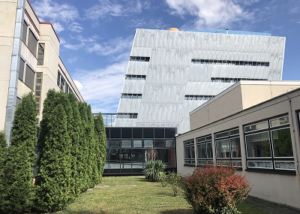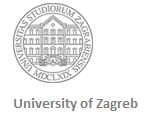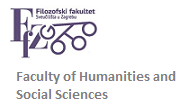Home » KNJIŽEVNI SEMINARI – 4. ili 6. semestar
Category Archives: KNJIŽEVNI SEMINARI – 4. ili 6. semestar
American Literature and Culture 2: Narrating Race in American Literature and Film
Course title: American Literature and Culture 2: Narrating Race in American Literature and Film Instructor: Prof. Mark Metzler Sawin, PhD (visiting scholar) e-mail: sawinm@gmail.com Zoom: https://zoom.us/j/7957944768 ECTS credits: 6 Status: elective Semester: 4th or 6th Enrollment requirements: Introduction to the Study of English Literature 1 and 2 Download syllabus (.PDF) COURSE DESCRIPTION & OBJECTIVES: This course is […]
Contemporary American Novel
Course title: Contemporary American Novel Instructor: Dr. Sven Cvek, Dr. Hrvoje Tutek ECTS credits: 6 Status: elective Semester: 3rd and 5th or 4th and 6th Enrollment requirements: enrollment in the 3rd and 5th or 4th and 6th semester Goal The course explores a number of novels which have been published since 9/11. The argument for […]
Victorian Literature: Genres and Issues
Victorian Literature: Genres and Issues Course title: Victorian Literature: Genres and Issues Instructor: Prof. Borislav Knežević ECTS credits: 6 Status: elective Semester: 3rd and 5th Enrolment requirements: Introduction to Study of English Literature 1 and 2 Course description: This course is designed as an introduction to Victorian literature. The reading is made up by texts […]
War, Reconstruction and Transformation: American Literature 1860-1914
Course title: War, Reconstruction and Transformation: American Literature 1860-1914 (A, 19/20) Instructor: Dr Jelena Šesnić Times: Mon, 8:45-9:30 (A-123), Wed, 9:30-11:00 (D 5) Office: B-018 E-mail: jsesnic@m.ffzg.hr Phone: 01/4092-060 Office hours: Mon, 12:00-13:00 p.m.; Thur, 10:00-11:00 a.m. Semester: Spring 2025 Status: elective Form of instruction: lecture (1 hour) + seminar (2 hours) Enrollment requirements: Introduction […]
British Romanticism: poetry (2019/20)
Course title: British Romanticism: poetry Course coordinator: Martina Domines Veliki, PhD Instructor: Martina Domines Veliki, PhD 2019/20 ECTS credits: 6 Language: English Duration: 1 semester (3rd or 5th, 4th or 6th semester) Status: elective Course type: 1 hour of lecture, 2 hours of seminar Prerequisites: Introduction to English Literature or Introduction into English Lit 1 […]
African American Literature: 1800-Present (2019)
Course title: African American Literature: 1800-Present Instructor: Prof. Mark Metzler Sawin, PhD (visiting scholar) ECTS credits: 6 Language: English Duration: Semester 4, 6 summer – CONDENSED COURSE, April-June 2019 Status: elective Enrolment requirements: completed Introduction to English Lit/Introduction to English Lit 1 and 2 ____________________________________________________________________________________ download syllabus (.PDF) COURSE DESCRIPTION & OBJECTIVES: In the first […]
American Short Story
Course title: American Short Story Instructor: Asst. Prof. Sven Cvek ECTS credits: 6 Status: elective Semester: 4th or 6th Enrollment requirements: Introduction to the Study of English Literature 1 and 2 Course description: The short story in the US is said to be the “national art form”. Taking up this assumption critically, this course we will offer […]
Twentieth Century American Poetry
Title of the course: Twentieth Century American Poetry Lecturer: prof.dr. Stipe Grgas ECTS: 6 Language: English Duration: 4th or 6th semester Status: elective course Teaching mode: 1 hour lecturing, 2 hours of seminar work weekly Preconditions for enrollment: „Introduction to the Study of English Literature “ I and II Contents of the course: The course […]
The Nineteenth-Century English Novel
Course title: The Nineteenth-Century English Novel Instructor: prof.dr.sc. Borislav Knežević ECTS credits: 6 Form of instruction: three hours a week Semester: 4th or 6th Enrolment requirements: Introduction to the Study of English Literature 1 and 2 Course description: The course presents a survey of the English novel in the 19th century, the period of a […]
The Anthropocene in British and Australian Fiction and Film
Course title: Anthropocene in British and Australian Fiction and Film Instructor: Dr. Iva Polak, Assoc. Prof. ECTS credit: 6 Language: English Duration: Semester 4 or 6 Status: Elective Enrolment requirements: Introduction to English Literature 1 and 2 Course description: We will discuss cultural implications of the Anthropocene, a new geological era in which humans have […]
Victorian Literature and the Transformation of the World in the Nineteenth Century
Course title: Victorian Literature and the Transformation of the World in the Nineteenth Century Instructor: Professor Tatjana Jukić ECTS credits: 6 Language: English Semester: 4 or 6 Enrollment requirements: Introduction to the Study of English Literature 1 and 2 Course description: Taking Jürgen Osterhammel’s history of the 19th century as its point of departure, the […]
Ethics and Aesthetics of British Modernism
Course title: Ethics and Aesthetics of British Modernism Instructor: Martina Domines Veliki, PhD ECTS credits: 6 Language: English Duration: 2nd or 4th semester Status: elective Course type: 1 hour of lecture, 2 hours of seminar Prerequisites: completed undergraduate studies Course description: The course deals with trauma theory the New Poverty Studies in order to address […]
British Romanticism: prose
Course title: British Romanticism: prose Instructor: Martina Domines Veliki, PhD ECTS credits: 6 Language: English Duration: 4th or 6th, 8th or 10th semester in ac. year 2017/18: 4th or 6th semester Status: elective Course type: 1 hour of lecture, 2 hours of seminar Enrollment requirements: enrollment in the 4th or 6th, 8th or 10th semester […]
British Romanticism: poetry
Course title: British Romanticism: poetry (Former course title: English Romantic Poetry) Course coordinator: Martina Domines Veliki, PhD Instructor: Martina Domines Veliki, PhD ECTS credits: 6 Language: English Duration: 1 semester (3rd or 5th, 4th or 6th semester) Status: elective Course type: 1 hour of lecture, 2 hours of seminar Prerequisites: Introduction to English Literature or […]
Contemporary American Novel (archive)
Course title: Contemporary American Novel Instructor: Prof. Stipe Grgas, Dr. Sven Cvek, Dr. Hrvoje Tutek ECTS credits: 6 Status: elective Semester: 3rd and 5th or 4th and 6th Enrollment requirements: enrollment in the 3rd and 5th or 4th and 6th semester Course description: The course explores a number of novels which have been published since […]



